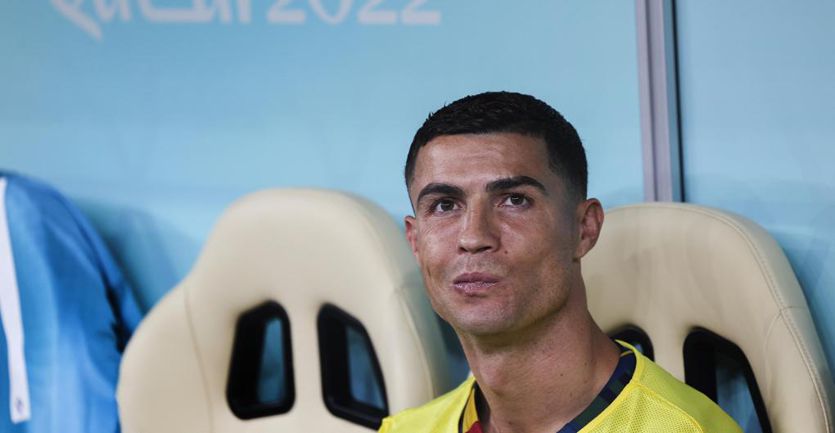Doha, from our correspondent – The 32 flags of the teams participating in Qatar2022 blow in the hot wind (not too much, actually) blowing from the desert. Doha is ready to celebrate the key moment of the grand ball of global football, the one that in a few days will skim off the eight queens left in the running towards the grand final on Sunday 18 December. And yet, on the Qatari fields, victory already seems to have gone to all those who were at least able to participate in the party. Then Gianni Infantino’s smile unfolds as he rattles off the record figures of an edition of which – with an expression reminiscent of Blatteria – he defines the group stage as ‘the most beautiful group stage in history’: an average of 51,000 viewers per game, stadiums practically always sold out, 2 billion TV audiences (even if, it should be remembered, the advertising revenue for the event on the eve of the event had contracted slightly, due to the peculiarities of the calendar and the pandemic).
The flag of denied rights has been lowered
In short, above all the 33rd flag, that of Fifa, flies in the sky over Doha, while that of denied rights seems to have been definitively lowered: a theme abundantly (and hastily) practiced until the first week of the competition by all the media of the globe (especially European and Anglo-Saxons); now instead, while the muezzin calls Muslims to evening prayer, the football gods are celebrated in the taxis and in the souk of the capital, from Messi to Neymar to Mbappé, or Morocco which embodies the dreams of two continents in one, Africa and the Maghreb, and which obviously also captures the many Asian and Middle Eastern sympathies. Today is dedicated to the ‘office-faces’: that is, to the interpretation of every single look and grimace of those who will be the protagonists of the first two matches of the quarter-finals, Brazil-Croatia and, subsequently, Holland-Argentina. Obviously, the two South American favorites risk the most: Brazil – helmed with wisdom and foresight by Tite – who enchants, and who would not want to wake up abruptly from his dream against the Croatians, to the Last Dance of the Modric generation; and Argentina who lives between the ecstasy of the title that would definitively equate Messi to Maradona, and the abyss that the one with the tulips could be the last match of the Pulce at a World Cup.
Infinite duel, the one between orange and albiceleste, from Cruijff ’74, to the final in Buenos Aires ’78, to Francia ’98 up to the semi-final won by the Argentines on penalties in Brazil 2014: now here it is the new chapter of the saga, and however it goes to to finish, it is undeniable that on the eve of it the Flemish brushstrokes of Louis Van Gaal’s prose remain in your eyes and ears more than the schematic oratory of Scaloni, who leaves (and hopes) it is the left hand of Pulce to paint masterpieces; while the crossing of gazes between the wise Tite and the pale-gold Modric suggests that for the Brazilians it might not be as easy as it still seems today, when at the World Cup we still turn our gaze to Walter Benjamin’s Angelus Novus, which advances in long strides towards the future looking precisely, backwards and at what has just happened (see triumph against the South Koreans) in its past.
Ronaldo: decline of a worldwide phenomenon
Past, indeed. Happened. In a word: success, which if you don’t know how to live it well, is nothing more than a backwards participle. ‘The’ success ‘also happened to Ronaldo, who is experiencing his being a ‘participatory’ champion: paradoxical is the denial of the Portuguese Football Federation, via an official statement, compared to an indiscretion from the Lusitanian press according to which CR7 would have been on the point of leaving the retreat of the national team, after the disagreements with coach Santos, the bench and then the few minutes played against Switzerland (impacted by the hat-trick of his substitute Gonçalo Ramos). Decline of a phenomenon that could have ended his career as ambassador of world football, but which at almost 38 years old is no longer even able to be a good ambassador of himself.
